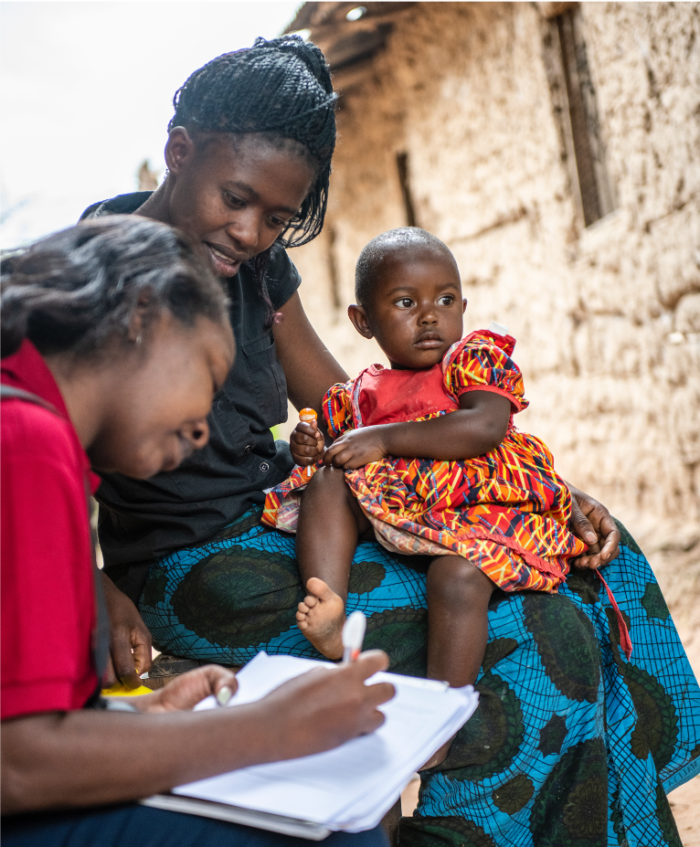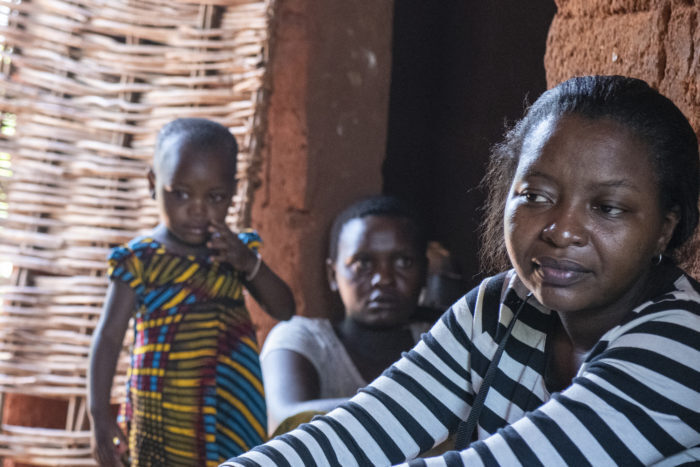
As the global community faces the novel coronavirus, several common catchphrases are being repeated in our world. Among them: social distancing, self-isolation, quarantine, sanitizer, masks and handwashing. These words are clear guidance for the actions we can all take to curb the rapid spread of COVID-19.
I have adopted the new culture, along with my colleagues and other implementing partners who are now working from home. When I need to go out to the market to buy groceries, or while at the bus stand , I am aware of the space between me and the next person, constantly moving to ensure that there is a two-meter distance (about 6 feet) between us, as recommended by public health agencies. Even at my community where handshake is a rule for greeting at these times I respectfully decline a handshake from people and good-humoredly refuse hugs from friends and family. We all understand. We are fighting a common enemy: COVID-19. No offense is taken.
I have adopted the new culture, along with my colleagues and other implementing partners… We all understand. We are fighting a common enemy: COVID-19. No offense is taken.
I carry hand sanitizers everywhere, using them as needed. At the slightest opportunity, I wash my hands. I am more conscious of it. While at it, I attempt to sing the happy birthday song twice. It gives me time to wash well between my fingers, and underneath my nails. I smile while doing it, thankful for the fact that I am privileged to have a tap with running water, as few people in Africa are.
At the slightest opportunity, I wash my hands. I am more conscious of it. I smile while doing it, thankful for the fact that I am privileged to have a tap with running water, as few people in Africa are.
As COVID-19 makes its way to Africa – with 52 countries reporting more than 15,300 cases and 835 deaths as of April 14 according to the World Health Organization – I wonder about these words and this advice we are hearing every day from specialized health agencies and our governments officials, and how they apply in some of the most remote communities. While COVID-19 so far has no known treatment, one of the actions that would help minimize the risk of infection – washing hands with soap and water – can be a luxury in these communities.
According to the World Health Organization, 780 million people are without access to clean water. This is 1 in 10 people. 40% of those people live in sub-Saharan Africa. In addition, 2.5 billion people need improved sanitation; this is a third of the world. Women and girls are disproportionately affected as they have to walk long distances to find water. Also, every 60 seconds a child dies from a preventable waterborne disease such as cholera and dysentery. The lack of access to clean water and sanitation in some of the poorest countries in the world will make handwashing, one of the most seemingly simple ways to reduce the spread of COVID-19, almost impossible.
The lack of access to clean water and sanitation in some of the poorest countries in the world will make handwashing, one of the most seemingly simple ways to reduce the spread of COVID-19, almost impossible.
Just to break this down further, a survey conducted by water.org in 2018 indicate that only 57 percent of Tanzania’s population of 57 million have access to an improved source of safe water, and only 30 percent of Tanzania’s population has access to improved sanitation. Under these circumstances people, particularly women and girls, spend a significant amount of time traveling some distance to collect water. In Tanzania, demand for both water and sanitation are high. The market for water products (storage tanks, pipes, rain harvesting facilities, etc.) and suppliers appears to be also dynamic.
In the last few weeks, various African presidents have heeded the call of the World Health Organization and have joined in its social media campaign #safehands to show proper handwashing practices. I am reflecting on the millions of people who lack this basic human necessity of clean water, who cannot boldly take part in the #safehands campaign, or sing the happy birthday song twice while washing their hands.

Now more than ever we need a concerted global effort to ensure everyone has access to clean water, no matter where they live.
Now more than ever we need a concerted global effort to ensure everyone has access to clean water, no matter where they live.
Building clean water infrastructure that will last for generations needs support now, so that more communities in sub-Saharan Africa are prepared with basic necessities of life the next time a global health emergency strikes.
Let’s remember this as we collectively fight COVID-19. And after we have won the battle against COVID-19, let’s remember that many remote communities in Africa will continue to fight preventable diseases caused by lack of access to clean water and sanitation.




